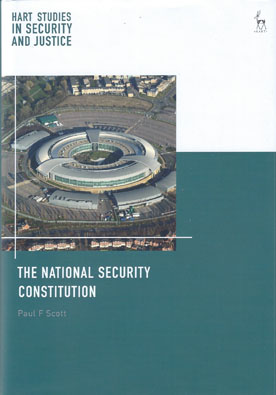
This book addresses the various ways in which modern approaches to the protection of national security have impacted upon the constitutional order of the United Kingdom.
It outlines and assess the constitutional significance of the three primary elements of the United Kingdom's response to the possibility of terrorism and other phenomena which threaten the security of the state: the body of counter-terrorism legislation which has grown up in the last decade and a half, the evolution of the law of investigatory powers, and (to the extent relevant to the domestic constitution) the law governing international military action and co-operation.
On the basis of this, it demonstrates that national security as a good to be protected and promoted in contemporary Britain is reflected not merely in the emergence of a discrete body of law by which it is protected at home and abroad, but that the concern with national security has leaked into other areas of public law - areas which are not directly linked to terrorism and legal response to it, but which become (whether by accident or design) implicated in these endeavours, with significant and potentially grave consequences for the constitutional order generally.
A renewed and strengthened concern for national security since 9/11 has, it is argued, dragged into its orbit a variety of constitutional phenomena and altered them in its image, giving rise to what we might call a national security constitution.